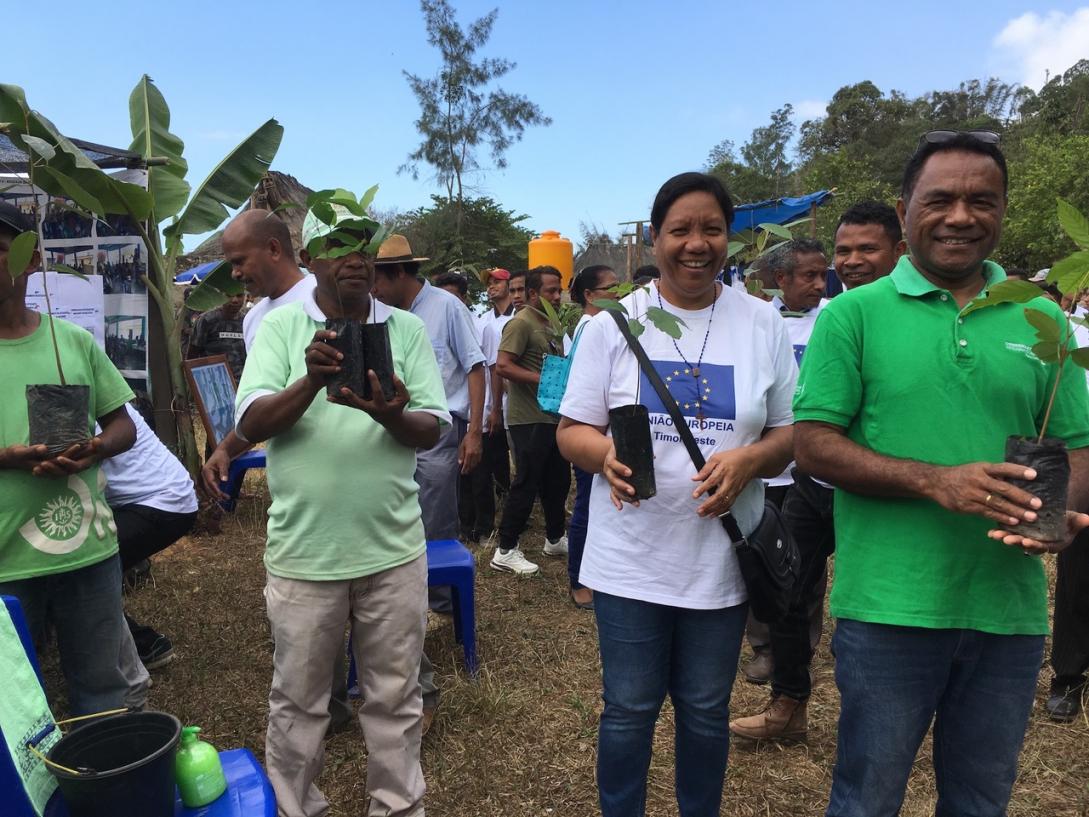The European Union in East Timor supports the São Paulo Foundation in developing natural resources in the Dare area.

The project aims to strengthen community resilience to climate change through increased management of sun and water use. One of the main objectives is the development of ecotourism and the economic improvement of communities.
With a contribution of USD 637,500 (EUR 562,500), the European Union aims to strengthen the capacity of the target communities of Dare in the Municipality of Dili to adopt climate-smart practices in mountain farming and improve food security for families by increasing and diversifying agricultural production.
The conservation and use of natural resources in a sustainable way is important to maintain the ecological balance and avoid the destruction of ecosystems. Therefore, the São Paulo de Dare Foundation will work with Civil Society organizations to provide information, education, training, representation and mobilization of communities.
The project includes several activities such as the use of new agricultural and water harvesting techniques; the conservation and use of soil; the development of ecotourism; the reforestation of 100 hectares of land; the planting of 10,000 seeds through the centers of nurseries that will be built for this purpose; the construction of small dams or the use of hybrid deposits near the ravines to support irrigation and to prevent and fight possible fires; and the identification of places of risk and retention from landslides, using bioengineering techniques for this purpose.
Timor-Leste is an island made up of mountain chain, distributed in the natural landscape, with approximately 61% slope and 26% flat land and other 13% with sea and lake dominance. Almost 80% of the total population depends on their subsistence source of agricultural production, where most of the agriculture is done on the slopes.
For many years agriculture-related activities have been directed towards monoculture and chemical pesticides and fertilizers have been introduced, seeds of Hebrides, where they will create a high dependency for Timorese farmers. The greatest negative impact for these two different forms of approach has affected over time the destruction of the environment and some species of plants, which genetically adapted to the natural conditions of the region. However, these effects have also negatively affected local knowledge, soil, water and agricultural practices in terms of conservation and use of these natural resources.
Thus, through this program, the FSPDD (Fundação São Paulo da Diocese of Dili) and the target community have the objectives of conserving and protecting the target area through collaboration between FSPDD, RAEBIA, Ministry of Agriculture and Fisheries (MAF-TL) and the local community for the implementation of these programs and proposed activities.





